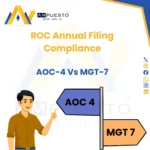Do you know if you receive crypto from someone as gift so you will have to pay tax on it? And now there will be some people who might not even know what is crypto, and have no idea about taxes on crypto. So firstly let’s try to help them first.
What is crypto currency?
First of all, if we want to understand the taxes on crypto we need to know about what is crypto? So starting from basic, crypto is digital currency, which is typically a decentralized digital money/token designed to be used over internet. A crypto can be used as a fiat currency for exchange of goods or services as well as crypto can be traded on applications like normal stocks. A well-known crypto and the very first crypto is bitcoin ?. Bitcoin was launched in 2009 and the creator of bitcoin wanted a currency which was not under the control of any regulatory or government and the creators launched Bitcoin and it became the most known and the most influential crypto. Form that time till now so many crypto has launched, like some of the most known crypto after bitcoin are ethereum, tether and Solana. But no one even came close to bitcoin in terms of market cap. Or popularity. Now as we know what crypto currency is, we can move forward for understanding about the taxation on crypto in India.
Virtual Digital Asset
Government has announced the rules and regulations for taxation of crypto currency in India in Union Budget 2022-23. In which government has specified cryptos, NFTs, stable coins or any other digital asset except digital gold, CBDC (central bank digital currency) or any other traditional digital asset as VDA (virtual digital asset). VDA is specially made for crypto or things like crypto.
How crypto will be taxed?
So as we already know that crypto transactions can be in more than one way. It can be traded like a normal stock and can be used as a fiat currency for exchange of goods or services and furthermore you can exchange a crypto for another one. So we need to be very specific that on which type of transaction which rate will be applicable and who will have to pay tax. There are some of the transactions in which crypto will be taxed:
- Converting crypto into INR or any other fiat currency
- Conversion of crypto to any other virtual digital asset or any other crypto
- Using any virtual digital asset for buying any goods or services.
What government has said about VDA?
As government still need to do so many discussions on crypto for regulating it in India. But still in union budget 2022 the government has prescribed some things that definitely should be kept in mind while being in any transaction with crypto.
- Income from the transfer of any virtual digital assets will be taxed at 30% at the end of each financial year.
- No deductions, except the acquisition cost, will be allowed while reporting income from the transfer of virtual digital assets.
- Loss from VDAs cannot be set off against any other income.
- The gifting of digital assets will attract tax in the hands of the receiver.
- Losses incurred from one virtual digital currency cannot be set off against income from another digital currency.
TDS on Crypto?
In the Union Budget 2022, government has mentioned that any consideration made for the transfer of virtual digital asset will be liable to Tax deduction at source (TDS) at the rate of 1% of the consideration effective from 1 July 2022. Point to be noted is that:
- TDS will be deducted on the amount of sale not on the profit.
- If the user has not filled income tax return in the last two years and the amount of TDS is INR 50k or more in each of these two previous year, then the tax deducted for crypto relatedtransactions will be 5%.
Tax on Crypto
As we have discussed earlier in this article crypto can be used in more than one way and all these ways are taxable at flat rate of 30% with 4% of cess applicable. But there are some cases where the liability to pay tax moves to another person. So let’s discuss these also, so that you don’t get any problem while filing ITR.
| Tax on: | Transaction with tax rate |
| Crypto to INR | Selling: A 30% tax is payable on selling any crypto asset with a profit margin. Buying: There is no tax when buying crypto assets with INR |
| Crypto to Crypto | Selling: A 30% crypto tax is levied when trading crypto. Exchanging: A similar 30% tax is also applied on such occasions. |
| Crypto Gift | Receiving crypto assets as gifts that exceed INR 50K are eligible for a 30% crypto tax. |
| Crypto Airdrops | As airdrops categorize under gifts, it is taxable under India’s 30% crypto tax if the amount exceeds INR 50K. |
| De-Fi Income | Selling: You may be liable for a 30% tax on any profits if you plan on selling, swapping, or spending the received tokens later. Buying: Earning new tokens is taxed upon receipt at your Individual Tax Rate |
| Holding | Since no buying or selling is taking place while holding onto your crypto assets, there is no tax on the same. |
| Wallet Transfer | No crypto tax is levied while transferring crypto assets from one wallet to another. |









